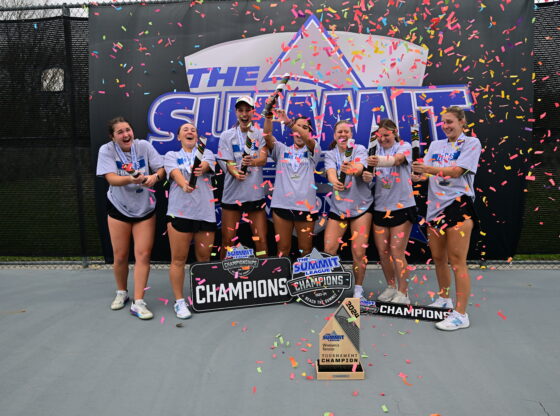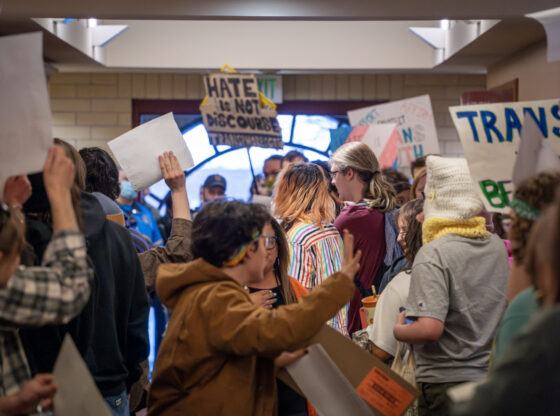On April 8, people all over the country celebrated the Great North American Solar Eclipse. Most saw the partial eclipse, like in Colorado and surrounding states. However, 13 states and a sliver of Tennessee and Michigan saw a surge in tourists coming to experience totality.
“Totality” refers to the 115-mile shadow the moon creates when it completely blocks the sun’s light. A “partial” eclipse is the incomplete covering of the sun by the moon.
At the University of Denver, students set up tables and equipment in front of Sturm Hall to celebrate the 65% partial eclipse. The University’s Society of Physics Students Club had tables, telescopes and eclipse-safe glasses ready for interested students. David Swartz, the president of the club, said that it will be many years before Denver will be witness to an eclipse of this size.
Swartz told the Denverite newspaper, “Sometimes college is about living and I think one class can subside to be able to see an eclipse and enjoy it, and sometimes an eclipse might be the thing that sparks something in someone to learn more about the universe in physics.”
Some lucky students had their classes canceled for the event, while others took a break from their lectures to watch the celestial event.
Nearby in Observatory Park, the Denver Astrological Society hosted a viewing party. Hundreds gathered to see the eclipse through specially filtered telescopes and other devices on the observatory’s south lawn. Casual viewers who brought their own telescopes offered views of the eclipse to passersby and answered any questions.
The Denver Museum of Nature and Science was another place Denverites could go to watch the eclipse. It hosted 30-minute presentations in its planetarium and offered lessons to people of all ages on how to safely watch the event with specialty glasses.
Concerns over the safety of some glasses erupted after certain brands were recalled for failing to meet some safety standards.
The Illinois Department of Public Health told the press that “Biniki Solar Eclipse Glasses AAS Approved 2024 – CE & ISO Certified Safe Shades for Direct Sun Viewing (6 packs)” were recalled because they potentially did not meet the ISO designation 12312-2. NBC reported that Amazon sent its customers an email on Friday warning them about the Biniki glasses and offered a refund. Amazon told NBC, “While we are not aware of any particular products that are unsafe, we took this action out of an abundance of caution.”
To find out if their glasses are 100% safe, people should find out if they were made in the US and check for the designation 12312-2.
Even though total eclipses typically happen every 1 to 3 years, they are rare because they often occur over oceans or other areas that humans cannot easily reach. Similar to the eclipse on April 8, there will be two more partial eclipses in 2028 and 2029. The next total solar eclipse will be on August 12, 2045, and the path of totality will pass directly over Colorado Springs, Pueblo, and Grand Junction.











